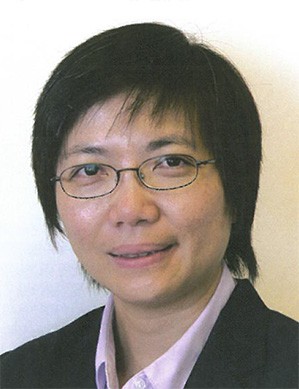
Visiting the University of Michigan for the first time in 15 years, Professor Agnes Chan brought with her a message of hope and a proposal for collaboration that will benefit generations of Americans, how they live, and perhaps how they remember their lives. Her expertise in neuropsychology has led her down an interesting path for a social worker that leads directly to the core tenet of the profession: making a difference.
Dr. Chan graduated from the U-M SSW Joint Doctoral Program in Social Work and Social Science (Experimental Psychology). She continued on to pursue her Ph.D. at University of California, San Diego and San Diego State University, but it is to her experiences at the U-M that Chan credits the current trajectory of her work. It was here that she met Dr. Rosemary Saari, and it was here where her field placement took her to the Veterans Administration hospital.
Originally interested in the theories of psychology, her field placement experience allowed her into a locked ward and unlocked for her some mysteries of the human mind. In the hospital setting, she interacted with an old veteran, suffering from aphasia-or the loss of his ability to communicate. The vet could not speak his name clearly, and yet could recite entire poems from memory. It was this experience that led Chan to understand that neuropsychology was unlike other forms of intervention. Memory loss, she found, is multi-dimensional and can include both physical and psychological components. Adding to Chan's interest was a conversation with Dr. Rosemary Saari which prompted her to consider the work she (Chan) was doing and asking "Is what I'm doing making a difference?" Chan has kept this question in the forefront of her mind, stating "I always ask 'Is this changing peopie's lives? Is this world different because of this research?' And I phrase my research questions in very meaningful ways."
Chan's research questions bridge two unique perspectives: the philosophies of the East and the medical science of the West. In her work, she seeks to identify complementary therapies that are useful in two different arenas: improving the memory skills, or slowing the degeneration of memory skills, in elderly populations, and assisting youth in performing better in schools, minimizing behavior problems, and also improving memories.
Chan's initial work included observation of two groups of elderly persons. One group performed cardiovascular exercises, while the other performed mind/body exercises based in the Eastern philosophies (e.g. Tai Chi). Both groups performed equally well in cognitive function and memory skills to a certain point, typically between the ages of 50-65. While Tai Chi and other mind/body-based exercise is generally thought of in American circles as less effective that pure cardio, Chan found that those in this group perform better in cognitive functioning and memory skills at later stages of aging. Both groups performed better than those who had no physical exercise.
She conducted a complementary study utilizing similar methods in two childhood populations. Chan found that, similar to the elderly populations, the children who practiced mind/body exercises had far fewer behavioral problems, performed better academically, and had better memory skills than their peers. Conclusions of the study were that both the relaxation aspect of the mind/body and physical activity helped the brain function, and together the two offered great results.
Results of Chan's work have been published in numerous journals, and will be forthcoming in the journal of the American Geriatric Society. Tai Chi is only one possibility in the potential of applying her work to the American population. America, she says, is becoming more open to ideas from other cultures, especially in response to their aging population.
Chan sees the opportunity to utilize various interventions she is exploring in the treatment of autistic children or stroke patients, among others. Combining traditional aspects of Eastern culture with Western medicine-for example, observing mind/body exercises and utilizing EEGs to track resulting brain functions, will take the best of both worlds, yielding a better program of intervention and the potential to help multiple generations of Easterners and Westerners alike.
- Melissa Wiersema is the special projects coordinator for the School of Social Work.